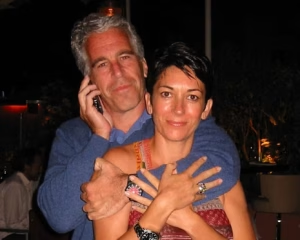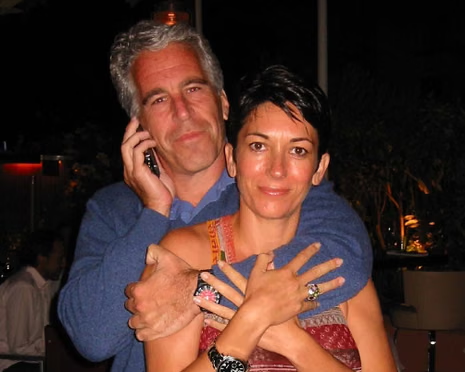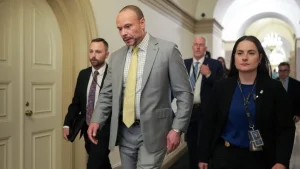In an extraordinary turn of events, NBC News found itself at the center of a controversy this week after hosting a panel of Jeffrey Epstein survivors in Washington, D.C. What the outlet may have expected to be an explosive revelation about former President Donald Trump instead became a clear rejection of unsubstantiated rumors — and a forceful demand for accountability from the U.S. government itself.
Six women who say they were trafficked by Epstein or Ghislaine Maxwell used the opportunity not to amplify partisan attacks, but to call for full transparency. They demanded the release of tens of thousands of investigative files tied to Epstein and pressed President Trump to rule out a pardon for Maxwell. Their unified stance sent shockwaves through political and media circles, particularly since NBC appeared poised to highlight links between Epstein and Trump. Instead, the survivors made it clear: they would not lend their voices to baseless claims.
Survivors Demand Justice — Not Political Spin
The panel featured Jess Michaels, Wendy Avis, Marijke Chartouni, Jena-Lisa Jones, Lisa Phillips, and Liz Stein, along with relatives of Virginia Roberts Giuffre, one of Epstein’s most well-known accusers who tragically died by suicide in April.
“Epstein was a master manipulator,” Michaels said. She recounted being raped by Epstein in 1991 when she was just 22. “That was a strategy honed over time. No young woman, no teenage girl, stood a chance against his psychopathic skills.”
For Michaels and the others, their participation was not about dragging high-profile names into the scandal without evidence. Instead, they framed their comments around the government’s failure to provide justice, citing delays, secrecy, and a lack of accountability. “We haven’t been protected, and we haven’t been informed,” Stein added, underscoring survivors’ ongoing frustration with the Justice Department.
Refusing to Fuel Rumors Against Trump
Perhaps the most surprising moment came when the women refused to validate rumors about Trump’s alleged involvement in Epstein’s crimes. For years, political opponents and certain media figures have sought to draw a direct connection between Trump and Epstein’s trafficking ring. But none of the survivors on stage offered such claims.
Phillips, who says Epstein groomed and assaulted her after luring her to his private island in the late 1990s, bluntly dismissed the narrative. Instead, she turned the spotlight back on officials and institutions that failed to act. “If authorities won’t take action, then we will keep pushing forward ourselves,” she declared.
This refusal was a stinging rebuke to NBC, which sources say hoped the panel would implicate Trump more directly. Instead, the network inadvertently provided a platform for survivors to reject politically motivated storytelling.
Epstein Files: The Push for Transparency
The survivors’ press conference came just hours before the House Oversight Committee, led by Chairman James Comer (R-KY), released more than 33,000 pages of Epstein-related documents. The committee’s action reflects growing bipartisan demand for transparency.
Rep. Ro Khanna (D-CA) and Rep. Thomas Massie (R-KY) joined survivors at another press conference to demand the immediate release of all Justice Department files. They are spearheading a discharge petition that could force a vote in the House, bypassing leadership delays.
Trump, for his part, has expressed support for releasing documents but has resisted endorsing conspiracy theories around Epstein’s death or alleged client lists. This puts him at odds with some in his own party who have amplified speculation.
Maxwell’s Ongoing Legal Saga
Ghislaine Maxwell, Epstein’s longtime associate, is currently serving a 20-year sentence for trafficking minors. She continues to appeal her conviction and has denied wrongdoing, including any suggestion of a “client list.” Recently released transcripts from a Justice Department interview show her denying that she ever witnessed inappropriate conduct by Trump or others.
Still, her case remains politically charged. Just last month, Maxwell was quietly transferred from a Florida federal facility to a minimum-security prison camp in Texas. The move drew sharp criticism from prison staff who argued it amounted to special treatment. Survivors pointed to the transfer as yet another example of unequal justice.
The Broader Political Implications
For NBC, the panel was supposed to be headline-making. Instead, it backfired, reinforcing perceptions that corporate media often tries to weaponize survivors’ stories for partisan gain. Critics say the outcome exposed a glaring double standard: while NBC has eagerly pursued speculation about Trump, it has shown less interest in scrutinizing Epstein’s ties to figures like Bill Clinton or Prince Andrew.
The survivors’ decision to reject baseless allegations may mark a turning point. By focusing on government accountability, they shifted the narrative away from partisan politics and toward systemic failures.
Meanwhile, the release of tens of thousands of pages of documents ensures the Epstein scandal will remain a political flashpoint. Lawmakers across the aisle appear united in demanding answers, though their motives may differ. Republicans are eager to expose corruption they say implicates elites, while Democrats seek to show they are not shielding Epstein’s allies.
Survivors Promise to Keep Fighting
Despite years of delays, the survivors made clear they will not back down. “We’ve been compiling lists of our own,” Phillips said. “If officials won’t act, we’ll do it ourselves.”
Their words reflect not only personal resilience but also a growing distrust of government institutions and media outlets alike. Epstein’s death in federal custody in 2019, officially ruled a suicide, remains one of the most controversial episodes in recent history. For survivors, the failures surrounding his detention are just one part of a much larger miscarriage of justice.
Conclusion
NBC’s attempt to push survivors toward implicating Donald Trump collapsed in real time, leaving the network embarrassed and the survivors empowered. Instead of providing “dirt” on Trump, the women demanded transparency, accountability, and real justice.
Their message was unmistakable: the focus should not be on speculative political attacks but on exposing the powerful networks that enabled Epstein for decades. Whether Congress and the Justice Department heed that call remains to be seen, but one thing is certain — survivors are refusing to let their stories be used as political props.

James Jenkins is a celebrated Pulitzer Prize-winning author whose work has reshaped the way readers think about social justice and human rights in America. Raised in Atlanta, Georgia, James grew up in a community that instilled in him both resilience and a strong sense of responsibility toward others. After studying political science and creative writing at Howard University, he worked as a journalist covering civil rights issues before dedicating himself fully to fiction. His novels are known for their sharp, empathetic portraits of marginalized communities and for weaving personal stories with broader political realities. Jenkins’s breakout novel, Shadows of Freedom, won national acclaim for its unflinching look at systemic inequality, while his more recent works explore themes of identity, resilience, and the fight for dignity in the face of oppression. Beyond his novels, James is an active public speaker, lecturing at universities and participating in nonprofit initiatives that support literacy and community empowerment. He believes that storytelling is a way to preserve history and inspire change. When not writing, James enjoys jazz music, mentoring young writers, and traveling with his family to explore cultures and stories around the world.









